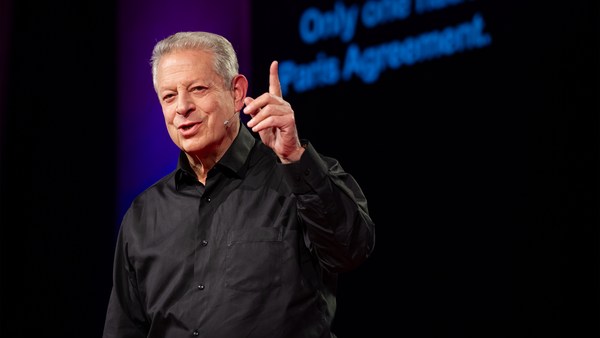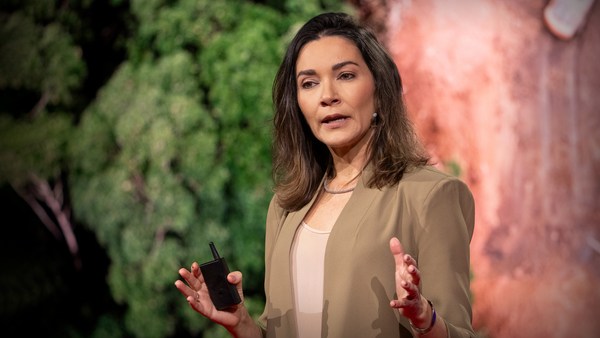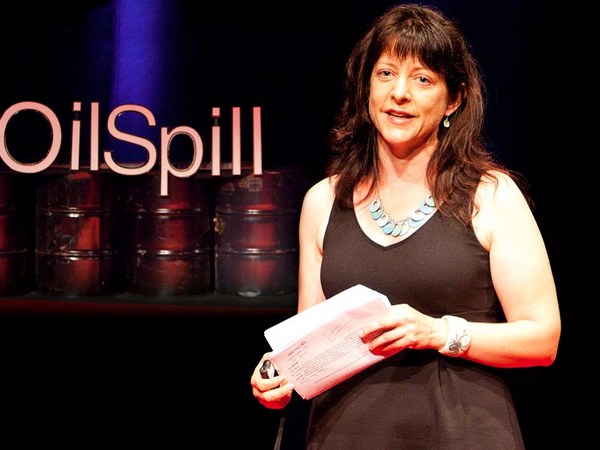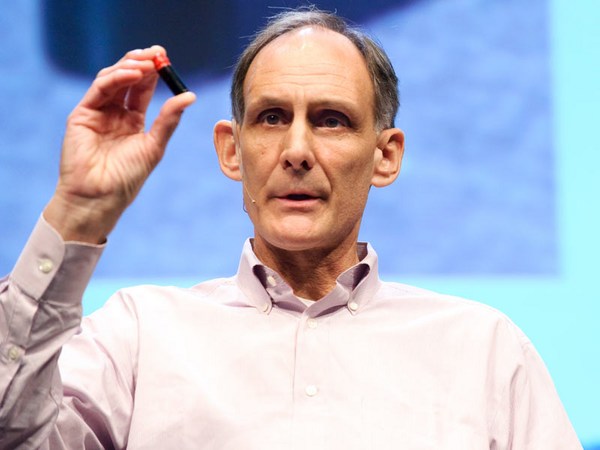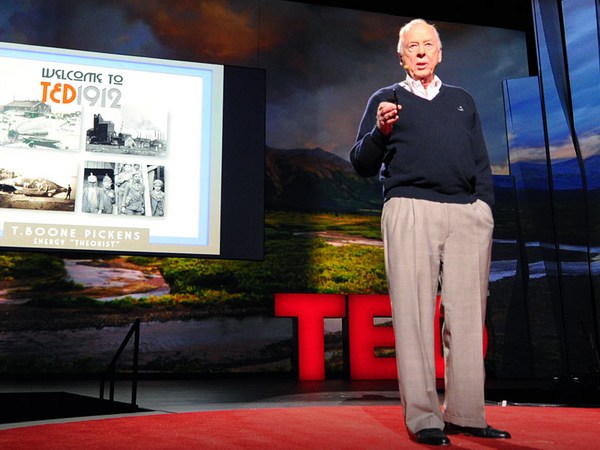When I was younger, I worked in the oil industry. I was a corporate lawyer inside one of the biggest oil companies in the world. Then one day, in the middle of a massive deal, a colleague said to me, "This is so sexy." And I knew I had to leave.
(Laughter)
(Applause)
So I did. I went back to my home country, Guyana, South America. Guyana is a very special place. It's a carbon sink. It's part of the Amazon rainforest. I started to work defending people and nature.
I drafted new laws to protect the environment and Indigenous land rights. I used those laws to empower an Indigenous community so that they could protect 2,300 square miles of tropical forest.
(Applause)
This was really important to me because I feel deeply connected to nature. Nature lives with me in my house and in my garden. I'm talking about the birds, the butterflies, the flowers, the trees, the bees, the bats, the toads, the lizards, the opossums, the little snakes. All of them are my family. And in the quiet stillness of an afternoon when a hummingbird shimmers in the air just a few feet away from me, I know there is magic on Earth.
But that magic is threatened by global overheating caused by greenhouse gas pollution from the fossil fuel industry. So the story I want to tell you now takes us back to the oil industry. But this time it's a story of fighting and winning.
(Cheers and applause)
The story begins in 2015, when ExxonMobil said they had found oil offshore Guyana. This is one of the biggest finds in recent times. More than 11 billion barrels of oil. Burning that could release five billion tons of greenhouse gas pollution. This Guyana field is so important to Exxon, they call it a jewel in their crown. I knew I had to do something.
I know what you're thinking. The oil industry is big. It's powerful. We've all seen how hard it is to go up against oil companies. They want you to believe that you can't fight them. But you can. And you can win. I'm doing it, and so can you.
The oil industry does not care about you, or human rights or the environment or the planet. The oil industry cares about money. The only thing they respond to is power. Law is power. I'm a lawyer. I use law.
(Cheers and applause)
When I first started this work, I was alone. People laughed at me for taking on the oil industry with no money and with a pensioner for a client. But I have filed ten cases against the oil, and good, courageous lawyers have been inspired to join this fight.
We first beat ExxonMobil in 2020. We cut ExxonMobil Guyana's permits down from 20 years to five years.
(Cheers and applause)
We managed to do this because I read through 197 pages of legal rules and regulations, and there, on page 191, was a rule that restricted environmental permits to five years. We just enforced that rule. Simple but effective.
I don't ask judges to make new laws. I don't use moral arguments. I use existing law. My heart tells me what to do, but my head tells me how to do it. I don't confuse the two.
(Cheers and applause)
Our most recent win was March 2025. We said the environmental impact assessment for Exxon's project to extract oil from Guyana should take into account all the pollution anywhere in the world, wherever that oil is burned, what we call Scope 3 emissions. We used a section of the law that I had drafted which said an environmental impact assessment must include indirect impacts. We said Scope 3 emissions are indirect impacts. The judge agreed. So the environmental impact assessment for that ExxonMobil Guyana project now has to take into account Scope 3 emissions, which makes it harder to justify doing oil. That decision sets a precedent. It applies to every project by ExxonMobil Guyana, and it applies to every company that wants to produce oil from Guyana.
(Applause)
Thank you. We all know oil production is a very dangerous exercise. When things go wrong, someone has to pay. And this brings me to our most significant case so far.
We said Guyana should not have to pay for harm caused by Exxon's drilling. We said Exxon should pay. The judge agreed with us.
He said ExxonMobil Guyana Limited is liable for all costs of cleaning up and restoring the environment and compensating people. And he said that liability is unlimited.
(Applause)
That could be billions of dollars. The judge said ExxonMobil Guyana Limited did not have the money to cover this potential liability, so he ordered an unlimited parent company guarantee. In the two weeks following this decision, ExxonMobil Corporation's share price declined by 12 percent.
(Cheers and applause)
We've had other successes. The courts have said ExxonMobil Guyana Limited has to comply with international law. They have to provide insurance. They have to provide a two-billion-dollar guarantee. The courts have even said that ExxonMobil Guyana's co-venturers, Hess Guyana and CNOOC, Chinese National Offshore Oil Corporation Guyana, are not allowed to use their petroleum production license to produce oil.
Of course, we don't always win. The first case I filed was for someone I met when I accidentally crashed into him on my bicycle. He was an advisor to the President of Guyana. His reputation was so fierce, his nickname was Rambo.
(Laughter)
Twenty years later, Rambo turned up in my office, now a 75-year-old pensioner, absolutely furious with ExxonMobil and determined to fight. I took the case.
The judges did not give us the ruling we asked for, but we still achieved something really significant. In many countries around the world, if you go to court and you lose, you could end up paying the other side's costs. That could be very expensive. People might be afraid to go to court. We changed that.
In our case, the judges said, if you come to court and you are protecting the environment, but you lose, you should not have to pay the costs for the other side. That makes it easier.
(Applause)
That makes it easier for people to go to court now and fight the oil industry. That decision already binds five countries. I hope that people outside of those five countries will take this judgment and will use it to persuade the judges in their countries that you should be able to fight for your planet and not be penalized if you lose in court.
We will continue to fight. We don't have a choice. The business model for the oil industry depends upon producing greenhouse gas pollution, which is a serious danger to life on Earth. It's them or us.
So ... Don't be fooled by the big bad image of the oil industry. We have the advantage. The oil industry is weak. It’s powerless. It's going to collapse. It's only a question of when. Of course, they want you to feel despair. They want you to feel as if you're powerless. But they can only do that if we let them.
When we fight with courage and intelligence, we beat the oil industry.
Thank you.
(Cheers and applause)

